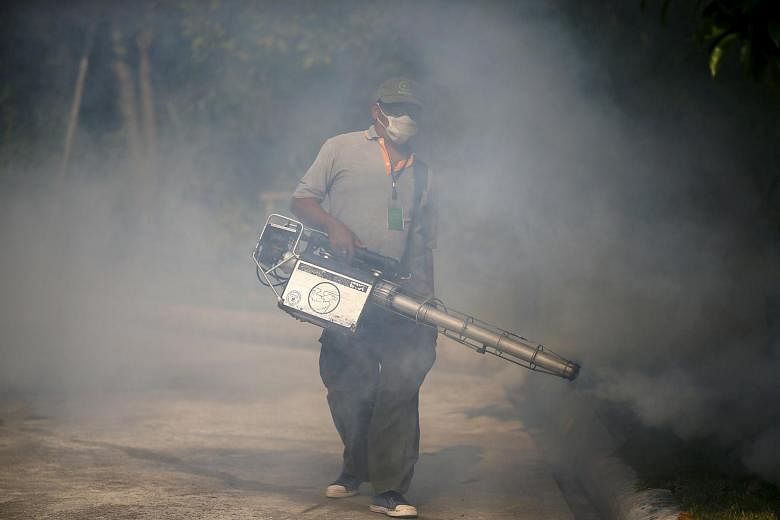Asia has gone on Zika alert as Indonesia, Singapore, the Philippines and Hong Kong stepped up their defences against the mosquito-borne virus, which has spread extensively in the Americas, where up to four million cases are expected this year.
Health officials in Indonesia, where one case of Zika was detected last year in Jambi, are re-examining samples of the virus in a bid to stave off an outbreak as the country heads into the rainy season.
"We are ramping up research not just on Zika, but also on all other viruses in the mosquito vector such as dengue and chikungunya... and doing checks on carriers across the provinces gradually - this is related to entomology," said Dr Oscar Primadi, head of the Health Ministry's communications and health services bureau.
Singapore's Health Ministry has alerted doctors to be on the lookout for potential carriers, while the National Environment Agency will raise vector controls should a case be detected, to prevent its transmission.
The Philippine authorities are doing the same and, like Japan, the Philippines has advised women who are pregnant or planning to conceive to avoid countries on the Zika watchlist. Its Department of Health has also ordered 1,000 test kits and designated six government hospitals as testing facilities for the virus.
Hong Kong has barred people who have returned from affected countries from donating blood, and advised the use of condoms as the virus has a 28-day incubation period.
Asian travellers have also been urged to avoid affected areas.
The Philippines, Cambodia, Indonesia and Malaysia have each reported one case of Zika-related infection since 2010.
Thailand is the worst-hit country in South-east Asia, with an average of five cases a year since 2012. There were two confirmed cases this year - one involved a young man who was infected on Jan 24 but has since recovered.
While it has yet to be proven definitively that the Zika virus is linked to a surge in cases of microcephaly - a devastating condition in which a baby is born with an abnormally small head and brain - the World Health Organisation has warned that a causal relationship was "strongly suspected".
Zika is also suspected of links to a neurological disorder called Guillain- Barre syndrome, a disorder that causes the immune system to attack the nervous system.
There is no cure for the Zika virus and experts say it may take more than a year before a vaccine is available.
Dr Oscar yesterday appealed for calm amid the uncertainty of the outbreak and asked Indonesians to do their part by preventing mosquitoes from breeding, whether in their homes or at their workplaces.
"People should not be overly worried about Zika because dengue is actually more dangerous and it has proven to us that it is deadly," he added.
•Additional reporting by Raul Dancel in Manila and Tan Hui Yee in Bangkok

